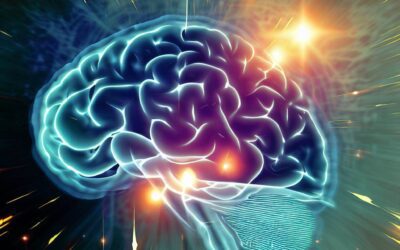“The Power Within: How Neurotransmitters Shape Our Thoughts, Emotions, and Actions”
The human brain is a complex and awe-inspiring organ that controls our thoughts, emotions, and behaviors. At the core of its intricate workings lie neurotransmitters, the chemical messengers that facilitate communication between nerve cells. In this article, we will delve into the fascinating world of neurotransmitters, exploring their functions, the types that exist, and their impact on our mental and physical well-being.
The Role of Neurotransmitters in the Nervous System
Neurotransmitters serve as the vital links between neurons, allowing electrical signals to transmit messages throughout the nervous system. Think of neurotransmitters as messengers delivering packages of information from one neuron to another. This intricate network of communication enables us to experience emotions, think, move, and carry out countless other essential functions.
Types of Neurotransmitters and Their Functions
- Serotonin
Serotonin, often referred to as the “feel-good” neurotransmitter, is involved in regulating mood, sleep, appetite, and social behavior. It plays a crucial role in maintaining emotional balance and a sense of well-being. Imbalances in serotonin levels have been associated with mood disorders such as depression and anxiety.
- Dopamine
Dopamine, known as the “reward” neurotransmitter, plays a significant role in motivation, pleasure, and reward-seeking behaviors. It is involved in various functions such as movement, learning, and addiction. Dopamine imbalances have been linked to conditions like Parkinson’s disease and schizophrenia.
- Acetylcholine
Acetylcholine is essential for muscle movement, memory formation, attention, and regulating the parasympathetic nervous system. It facilitates communication between neurons involved in learning and memory. Imbalances in acetylcholine levels can impact cognitive functions and muscle control.
- GABA
Gamma-aminobutyric acid (GABA) is the primary inhibitory neurotransmitter in the central nervous system. It helps regulate neuronal excitability, reducing anxiety and promoting relaxation. GABA plays a critical role in maintaining a balanced and calm state of mind.
- Glutamate
Glutamate is the brain’s primary excitatory neurotransmitter, involved in learning, memory formation, and various cognitive functions. It facilitates the transmission of signals between neurons and is essential for normal brain function. Imbalances in glutamate levels have been associated with conditions such as epilepsy and neurodegenerative disorders.
Neurotransmitter Imbalances and Associated Disorders
Disruptions in neurotransmitter levels can lead to various neurological and psychiatric disorders. For example, low serotonin levels are associated with depression, while imbalances in dopamine can contribute to Parkinson’s disease or schizophrenia. Understanding these imbalances can aid in the diagnosis and treatment of such conditions.
Understanding Neurotransmitter Research and Discoveries
Ongoing research continues to shed light on the intricate mechanisms of neurotransmitters and their impact on brain function. Scientists are exploring new ways to manipulate neurotransmitter levels to develop novel treatments for neurological and mental health disorders. The field of neuropharmacology is continually evolving, presenting promising avenues for future breakthroughs.
How Neurotransmitters Impact Mental Health
Neurotransmitters play a significant role in mental health and well-being. Imbalances can lead to mood disorders, anxiety, and cognitive impairments. By understanding the impact of neurotransmitters on mental health, we can develop targeted interventions and treatment approaches.
Importance of a Healthy Lifestyle for Optimal Neurotransmitter Function
Maintaining a healthy lifestyle is crucial for optimal neurotransmitter function. Several factors can influence neurotransmitter balance, including nutrition, exercise, and sleep.
A. Nutrition and Neurotransmitters
Proper nutrition is vital for the synthesis of neurotransmitters. Consuming a balanced diet rich in vitamins, minerals, and amino acids supports optimal neurotransmitter production. Incorporating foods such as fish, lean proteins, fruits, and vegetables can contribute to a healthy brain and neurotransmitter function.
B. Exercise and Neurotransmitters
Regular physical activity has been shown to have a positive impact on neurotransmitter balance. Exercise stimulates the release of endorphins, which promote feelings of well-being and happiness. Additionally, it enhances blood flow to the brain, supporting overall cognitive function.
C. Sleep and Neurotransmitters
Quality sleep is essential for neurotransmitter restoration and optimal brain function. During sleep, the brain consolidates memories and restores neurotransmitter levels. Establishing a regular sleep routine and creating a sleep-friendly environment can help improve neurotransmitter balance.
Enhancing Neurotransmitter Balance Naturally
Several natural techniques can help balance neurotransmitter levels and support overall mental well-being.
A. Stress Management Techniques
Chronic stress can disrupt neurotransmitter balance. Incorporating stress management techniques such as mindfulness meditation, deep breathing exercises, and engaging in activities that bring joy can help regulate neurotransmitter levels and reduce the negative impact of stress.
B. Mindfulness and Meditation
Practicing mindfulness and meditation has been shown to positively influence neurotransmitter function. These techniques promote relaxation, reduce anxiety, and enhance overall mental well-being.
C. Physical Activity and Brain Health
Engaging in regular physical activity not only supports neurotransmitter balance but also promotes brain health. Exercise increases blood flow to the brain, stimulates the release of endorphins, and enhances cognitive function.
Neurotransmitters and Cognitive Enhancement
Understanding neurotransmitter function can shed light on cognitive enhancement techniques. By optimizing neurotransmitter balance through lifestyle modifications, individuals can potentially enhance cognitive abilities such as memory, focus, and attention.
The Future of Neurotransmitter Research
The field of neurotransmitter research is continually evolving. Advancements in technology and scientific understanding will pave the way for novel treatment approaches, providing hope for individuals with neurological and mental health disorders.
Conclusion
Neurotransmitters are the crucial messengers that allow our brain and nervous system to function seamlessly. Understanding their functions, imbalances, and the impact on mental health empowers us to take steps towards optimizing our overall well-being. By embracing a healthy lifestyle, incorporating stress management techniques, and staying abreast of the latest research, we can support optimal neurotransmitter balance and enhance our mental and physical health.





